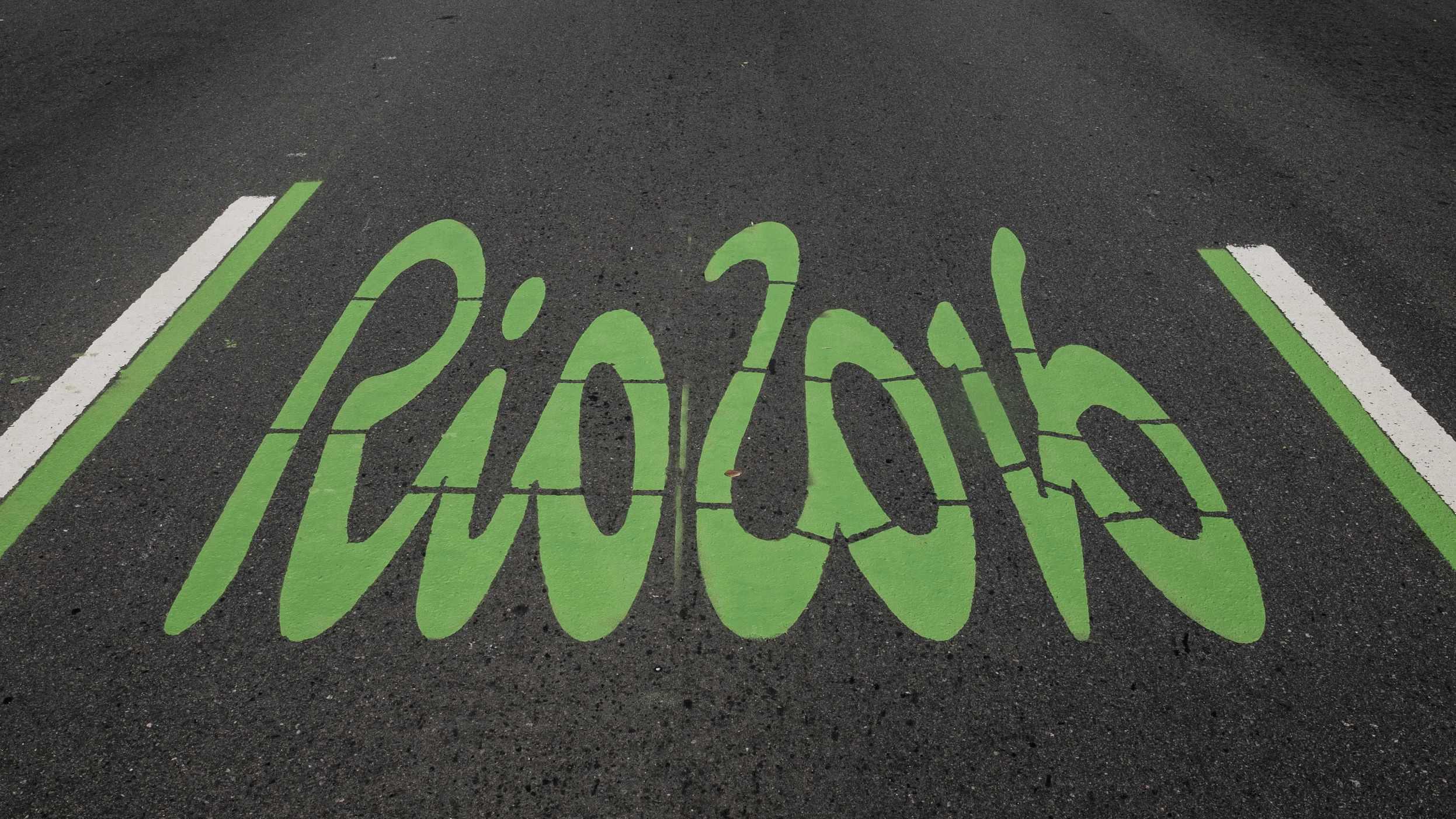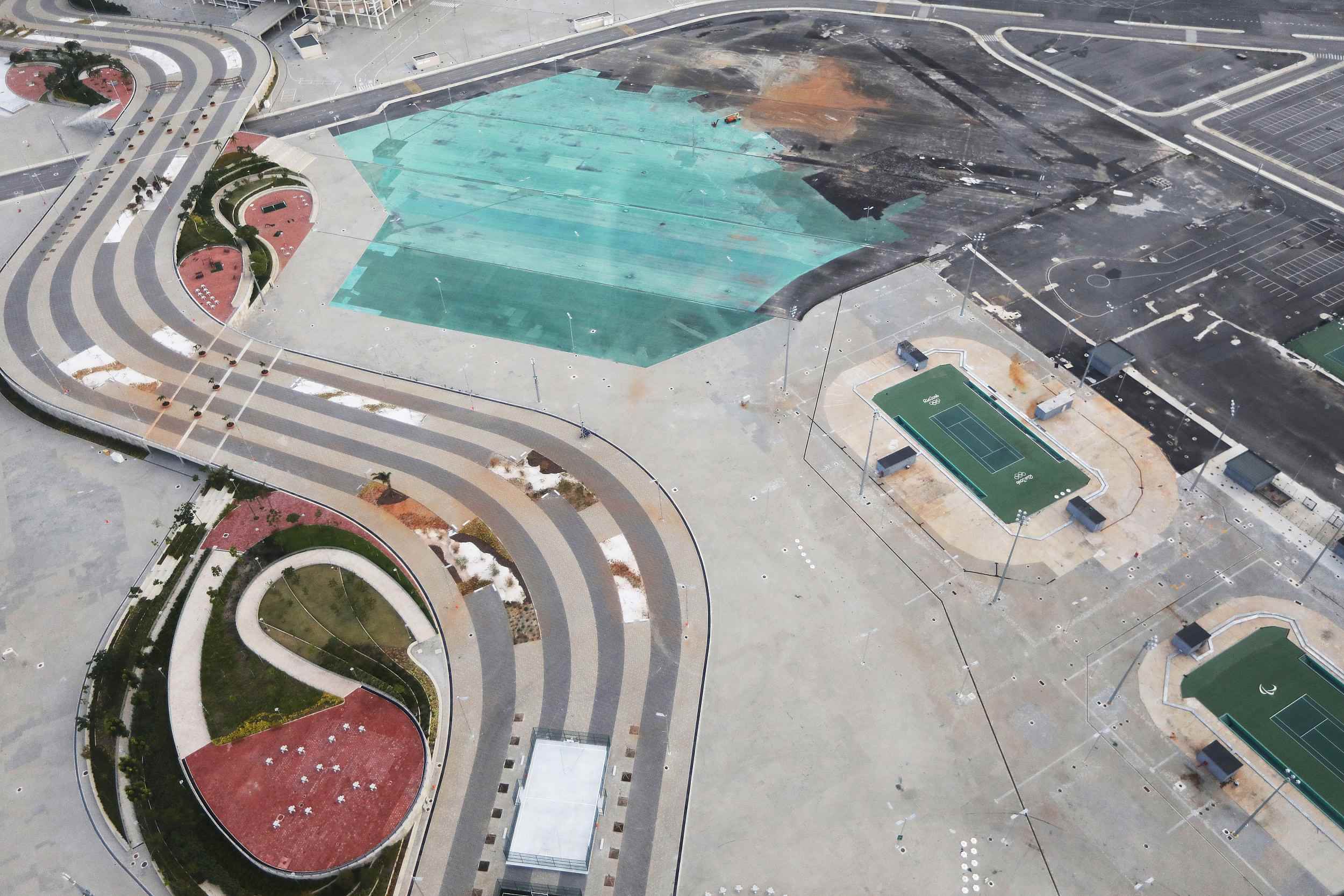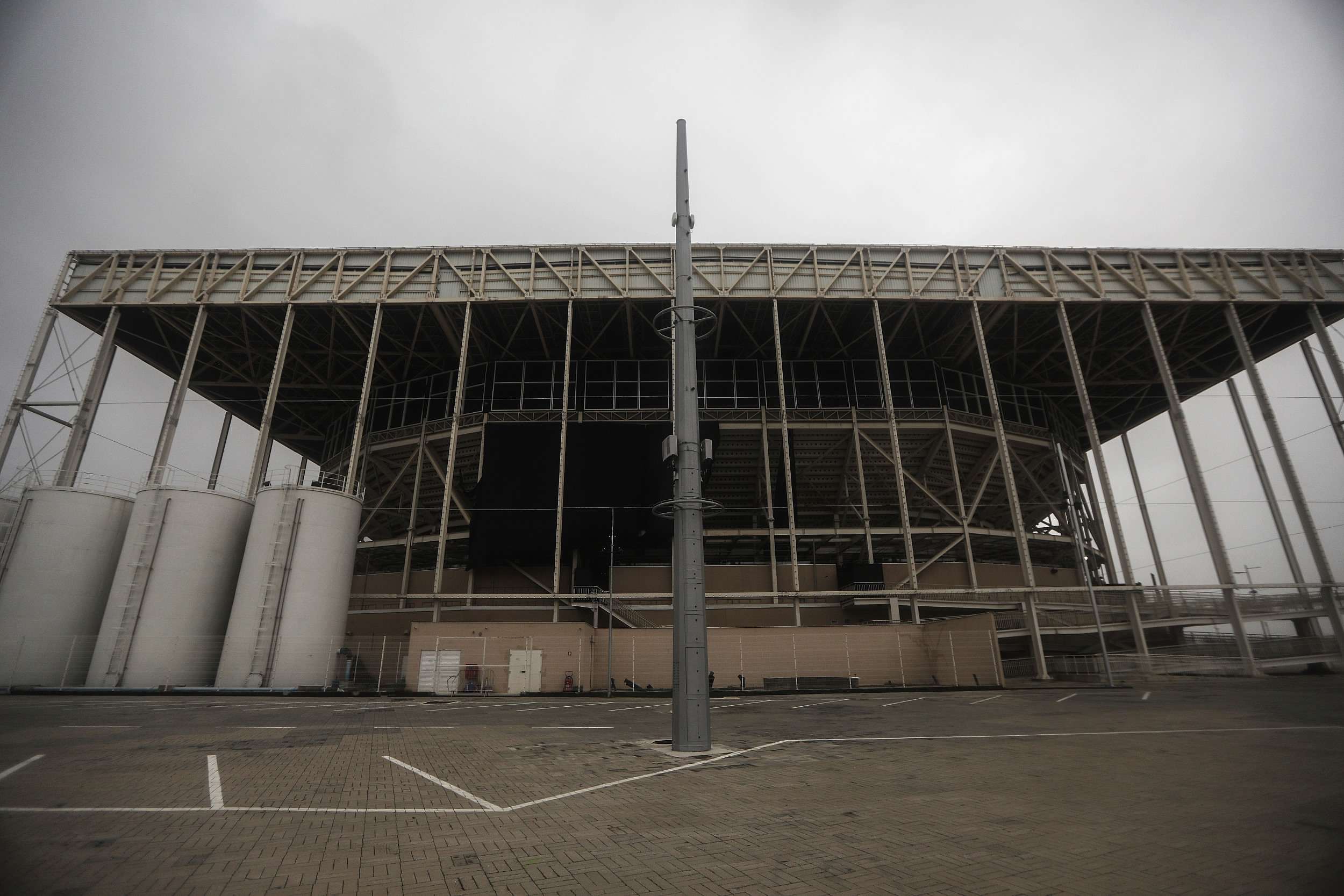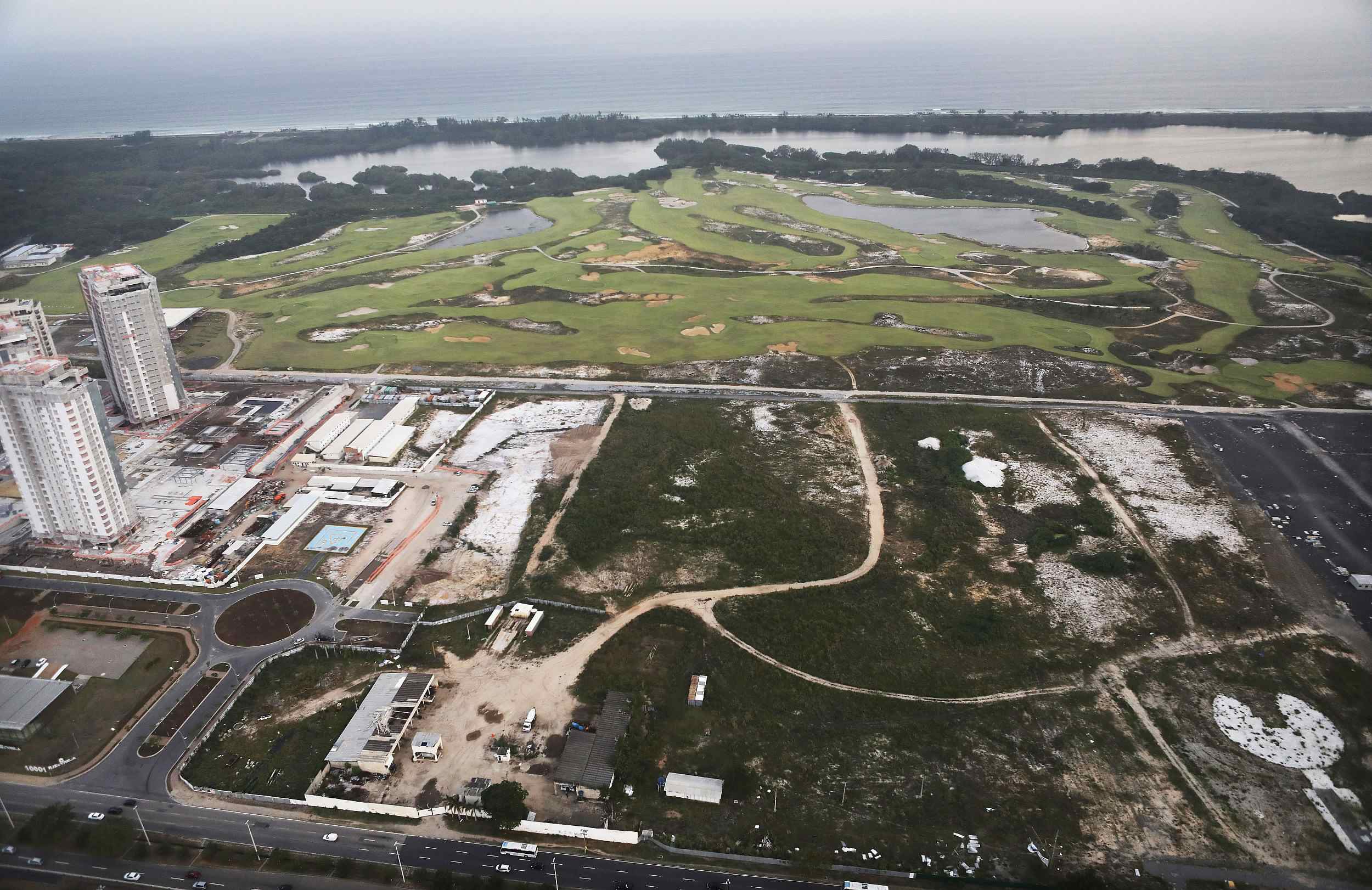Rio Olympics price tag at $13.2 billion as gov't promises reuse of facilities

The cost of last year's Rio Olympics has risen to 13.2 billion US dollars, around 4.4 billion US dollars more than originally planned, according to figures published by the federal agency for Olympic legacy (AGLO) on Wednesday.
The total could still climb further, but it was in keeping with expectations that had been revised during the countdown to South America's first ever Olympics.
The cost is below the 14.3 billion US dollars spent on London 2012, but still more than twice the 5.2 billion US dollars average cost of hosting the Summer Games, according to a 2015 study by the University of Oxford and Said Business School. Some 2.2 billion US dollars were spent on venues, AGLO said.

Remains of tennis facilities (bottom, right) stand in the Olympic Park in Rio de Janeiro, Brazil on March 17, 2017. /VCG Photo
Rio de Janeiro, which hosted the Olympics in August and the Paralympics in September, has been criticized for a lack of legacy planning, with some of the venues abandoned soon after the closing ceremony.
Other infrastructure projects, including a new metro line that does not extend all the way to the main Olympic Park, have had their effectiveness questioned.
Officials said that legacy planning was a major challenge but that they intended to hold an average of three events a month at the Olympic venues starting this June, a number they hope will increase to 10 events a month by December.

The Olympic Aquatics stadium stands mostly abandoned at Olympic Park in Rio de Janeiro, Brazil, on March 18, 2017. /VCG Photo
Brazil vows good use of abandoned Olympic venues
Brazilian authorities launched a plan on Wednesday to make sure expensive venues used last year in Rio de Janeiro's Olympic Games do not fall into disuse. Paulo Marcio Dias Mello, head of the AGLO, said all the venues in the city's Olympic Park would be re-opened by July.
"Everyone is keen to see the Olympic Park going full steam ahead," he said at a public presentation at the Olympic cycling stadium in Rio de Janeiro. "We need to involve the public in this heritage plan."

The Olympic Golf Course (top) stands partially degraded next to vacant lots (bottom) in Rio de Janeiro, Brazil, on March 17, 2017. /VCG Photo
The government and city authorities set up the heritage body in March after plans for a public-private partnership to run the sites fell through when no one stepped forward to invest in them.
Key venues have lain empty and in disrepair since last August's games.
AGLO announced plans for five events to be staged in the Olympic complex including an international beach volleyball tournament in a tennis court that will be filled with sand.
(Source: Reuters, AFP)
